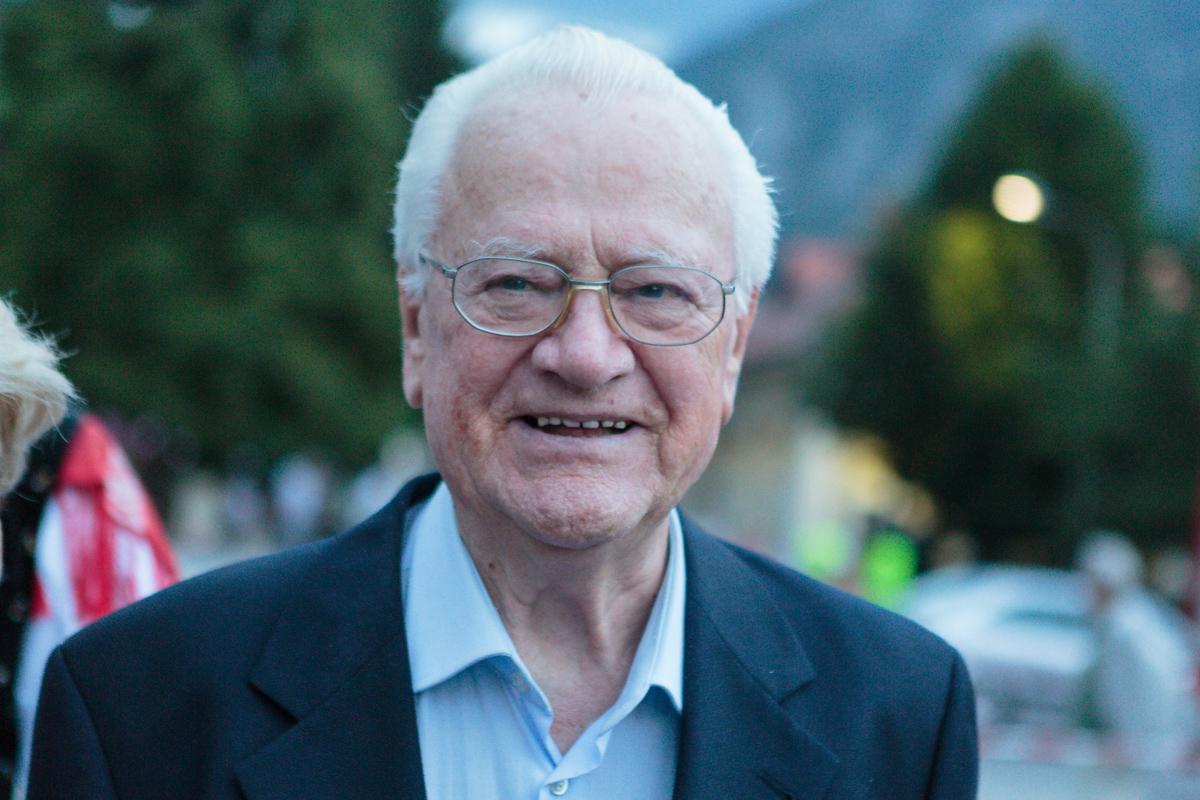The legend of the Slovenian Oberkrainer music Slavko Avsenik, the author of numerous hits including the legendary composition Na Golici (Trumpet Echoes), which consequently became a folk tune, died at the age of 85.
Slavko Avsenik and his brother Vilko with their band paved the way for the Oberkrainer music. They are considered the most often played and the best sold authors of the Oberkrainer music in Europe. They have produced nearly 1,000 songs, their most popular composition being "Na Golici" ("Trumpet Echoes" in English) with more than 600 arrangements by other musicians. It is believed to be the most often played instrumental composition in the world.
More than 10,000 performances
The Avsenik Band had more than 10,000 performances, and took the Oberkrainer music from the Upper Carniola to the most prestigious and the largest concert halls, including the Berlin Philharmonic Hall. They can pride themselves with more than 10,000 imitators, and 150 Avsenik music fan clubs.
"Everything that has happened was coincidental and I am still analysing it today. All I can say is: 'Thank you, my destiny'," Avsenik once said about his career. He had never considered becoming a musician, but his brother Vilko had an important role in Slavko’s choice of career, and together they have created a great number of hits.
Slavko Avsenik was the youngest child of the Avsenik family from Begunje in the Upper Carniola. After finishing elementary school he remained at the home farm, and now and then played his instrument. At that time he liked ski jumping, and in 1946 he even entered the national team. His personal record of 74 metres was set in Planica. In 1952 he married Brigita, and the married couple temporarily managed the inn Pri Jožovcu.
The Avsenik family musical history is even longer than 60 years, as the Avsenik family quartet had performed at the inn Pri Jožovcu even before. But the real start was in 1953, when Slavko Avsenik for the first time played his piano accordion at Radio Ljubljana. As he explained later, his brother Vilko had the decisive role in his decision to join the world of music. At that time Vilko played in the Adamič orchestra, and Franc Koren needed somebody to accompany his singing. Vilko recommended his brother Slavko, and from there on it went only uphill.
With Vilko they formed the Slavko Avsenik Trio, and soon after the famous Upper Carniola Quartet (Gorenjski kvartet) which broke all rating records; the next step was the Avsenik Brothers Quintet – and new genre of popular music. The quintet was the first in the world to merge the instruments which had been previously considered incompatible: piano accordion, clarinet, trumpet, baritone, and guitar. Elements characteristic of folk trios were enriched with brass band elements, and the response by the audience was excellent.
For decades the home audience was enthralled by the band. For many years they performed abroad as well – the organizers from Germany, Switzerland, Austria, and from the other side of the ocean struggled to bring them to their countries. The musicians were the best ambassadors, and carried the name of Slovenia into the world.
He remained tied to music to the very end
In the interview at the occasion of his 80th birthday the popular musician admitted that he had stopped playing his accordion, but he kept in close contact with music till the very end. He often played the piano and took pleasure in creating music for other performers, mostly for his grandson Sašo Avsenika, who keeps the family tradition alive.
How did Golica happen?
Eventually the Avsenik's composition Na Golici has become a folk tune. It is the most often played instrumental composition in the world. It was composed by chance – during Slavko's night job at Tonosa, where he worked as a knitter. "I had the night shift, and my knitting machine was rather slow, and while it was working I walked up and down, and suddenly this melody came to mind: para-rara-para-rara-pararararam. As I couldnt't read notes – and still can't - I wrote the melody down in my own manner. And then I called my brother and told him: »I have a melody here, would you write it down? And that was that."
The rich heritage of Slavko's international career and his accomplishments are today well preserved, and presented in an interesting manner at the Avsenik homestead in Begunje. The Slovenian Ethnographic Museum two years ago included the Avsenik music into the Slovenian non-material cultural heritage.


































































